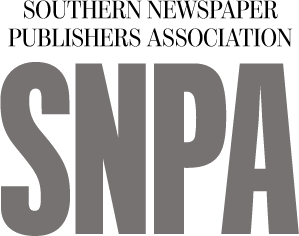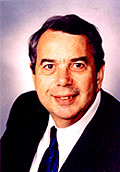You want me to speak in public?
One of the reasons I majored in journalism is my preference for writing versus talking. Many newspaper friends over the years have echoed a similar sentiment. My students, overall, have said they also prefer typing over talking. In fact, research studies indicate that public speaking ranks as Americans' No. 1 fear, even higher than death itself.
That led comedian Jerry Seinfeld to quip, "So if you're going to a funeral, you're better off being in the casket that giving the eulogy."
Despite that type of concern, it's inevitable that journalists will have to address groups in the community. It could be your paper's own speakers' bureau reaching out to you for a speaking assignment. Or it may be a group of readers want to talk with you during an assignment or after seeing your article.
No legitimate speaking seminar will ever claim it can eliminate anxiety. All you can do is learn to control it. And your writing skills will come in handy to help you accomplish that feat. My simple tips to do this are:
- Review: know your material, be comfortable with it, have good notes handy.
- Rehearse: practice aloud, attempt to rehearse in similar location, try out mechanics, lighting
- Relax: get there early, concentrate on smiling.
- Render: audience will not notice your anxiety, move around, make good eye contct
Just as you report facts in your copy, you'll want to employ storytelling techniques in your speech. That means the inverted pyramid will be an inappropriate format for most situations. Your feature stories are full of anecdotes and narratives. Use them when you speak.
Think short
Students are taught in journalism school to use shorter words, sentences and paragraphs. The same holds true for speaking. You don't want to stumble over your own words or run out of breath finishing a sentence.
And listeners will better grasp what you're saying when long-winded sentences are shortened. Vary your sentence length, but watch out for any longer than 30 words so you can say it in one breath. "Clarity, simplicity, is everything," says Donna Mac, a communications coach and broadcaster who has worked in radio for over 25 years.
Think verbal
Journalists are used to looking over their copy before hitting send. (After all, multiple copy editors sitting around the horseshoe poring over stories haven't been in newsrooms this century.) So, speakers will not only want to look at their speech, but to read it out loud. This benefits scribes turned speakers in a few ways.
- It will help you avoid tongue twisters that looked fine when typed on your computer screen. "The sophomore safety had shoulder surgery this summer," looks good in printed form. But saying it aloud isn't quite as smooth.
- Abbreviations should be avoided; otherwise the "St." you glance at on your note card may actually be "Saint" not "Street."
- Another conversational tip is to use contractions and informal language.
Think slow
Inexperienced student speakers often rush through their speeches, just to get them over with. But that delivery style is not ideal for listeners. Slowing down to breathe will help you pause in the right places, rather than gasping for air in the middle of a phrase.
You can also stress the words you want to emphasize. That means you'll want to capitalize key words and put in extra commas, despite your Associated Press upbringing.
Overall, I hope these simple tips may help you get through your next speaking engagement with less apprehension. Who knows? You might even enjoy the experience.
Long-time SNPA columnist Dr. Randy Hines is a former journalist who recently retired after 32 years of teaching at various universities. Now back in the classroom part-time, he is teaching at the University of North Georgia. He's authored two books: "Print Matters: How to Write Great Advertising" (Racom Books) and "PR Writer's Toolbox" (Kendall Hunt). He can be reached at randyhinesapr@yahoo.com.






